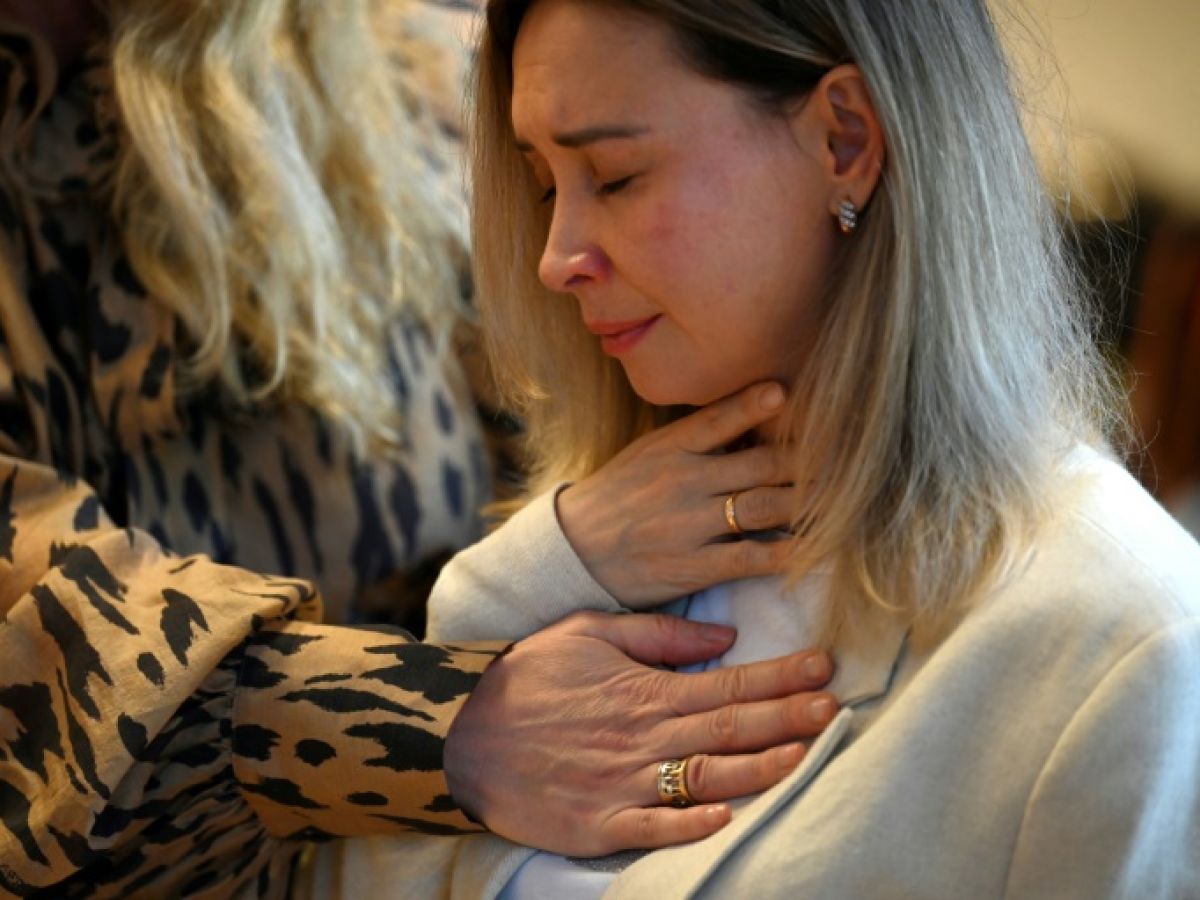Three years after the Russian invasion, Olga Cheiko still suffers from anxiety, like many other Ukrainian women who have taken refuge in Poland.
In the first year after fleeing, she gained 25 kilos, which she attributes to the psychological cost of the war.
"We have all become accustomed to stress, but the body's resources are not unlimited," she told AFP in Warsaw, her new adopted city.
As the war enters its fourth year, the 42-year-old has never stopped following the news, fearing for her family and friends in Kyiv, Odessa and Zaporizhzhia, the southern city where she was born.

Bombing and destruction have now reached every city in Ukraine, "and you don't know what will happen tomorrow."
"These thoughts make life difficult here; you can't relax and feel like a Pole. Because we live in anticipation of bad news," she emphasizes.
– “Suicidal thoughts” –
Of the 900,000 Ukrainian refugees living in Poland, 90% are women and children.

Their mental health varies depending on their experience, coping skills, and background. Many are still exhausted and are only just beginning to become aware of their condition.
"At the beginning of the war, acute stress was more intense," explains Tetiana Moiseyeva, a psychotherapist who runs psychological support workshops in the Polish capital.
As the war dragged on, women fought with a contained "accumulated fatigue."
"That's the problem: it's extremely psychologically taxing. And it leads to mental health problems and illnesses," she notes.
Workshop participants share their feelings while sitting in a circle, an exercise that often brings out previously suppressed tears.

She said many of her clients turned to antidepressants to cope with the effects of repressed trauma, like Diana Sozonova, a 23-year-old refugee from Kyiv.
She had already suffered from severe depression. The outbreak of war led to a relapse.
"I started having suicidal thoughts," Sozonova told AFP.
She had planned to return to live in Ukraine, but anxiety prevented her from doing so, causing paralyzing fear the last time she visited the relatively safer western part of her country.
"I felt like a missile could hit me. Here and now."
Olga Poliovnytcha, 37, fled the Ukrainian capital with her three-year-old son.
Now living in a comfortable two-bedroom apartment, she works remotely for an advertising agency in Ukraine.
The road to stability has been difficult.
"I was kept going by my anger, but after a year I couldn't take it anymore," says Olga, from Kherson in southern Ukraine.

"I realized I had to do something with my life. I have a child who needs me," she continues.
She says she felt guilty and ashamed: while people in Ukraine were suffering, she was getting better. When the acute stress passed, she sank into depression.
"I wanted help, but I had no one to confide in. I was sinking, finding myself at my child's level. He cries, and I want to cry too, to lie on the floor and kick my legs. That's when I went to see a psychologist."
– “Two windows” –
According to Maryna Mazourak, coordinator of the Ukrainian Women's Club in Warsaw, there is "always a demand for psychological support" among refugees.
"Almost all women live in two places at the same time. It's like opening two windows on a computer screen: here is Ukraine, there is Poland, and it's very difficult to connect everything."

His club organizes activities almost every day and free places are taken within minutes.
“Art therapy, crafts, physical activities, all of these are aimed at helping with emotional and psychological self-regulation,” notes Ms. Mazourak.
The women members of a group that meets weekly to weave camouflage nets for the Kyiv army have become particularly close. Last year, the volunteers celebrated Christmas together.
For Olga Cheïko, all Ukrainian refugees have something in common: "We have all experienced the loss of something: peace, work, family."
Whereas in the past holidays and exhibition openings had given meaning to his life, today all of this "has ceased to matter."


